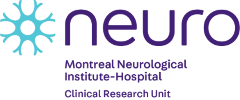The INHANCE study measures the impact of a brain training program on chemicals in the brain

By Sophie Lorenzo
January 26, 2022
According to the Alzheimer’s Society of Canada, almost 40% of people over the age of 65 experience some form of memory loss, known as age-associated memory impairment. The accepted wisdom is that, in order to stave off further cognitive decline and possible dementia, we need to keep our brains active. But how do we know what really works to keep us sharp?
“In my clinic, I see patients with memory problems, and they’re worried. They tell me that they are doing crossword puzzles every day; but we now know that crossword puzzles don’t do much,” explains Dr. Etienne de Villers-Sidani, a neurologist specializing in cognitive disorders at The Neuro (Montreal Neurological Institute-Hospital). “In order to show benefit, we need a type of training that involves your senses, that involves your attention and that gets harder and harder over time.”
Gaming the brain
Dr. de Villers-Sidani is the principal investigator for the INHANCE study taking place at the Neuro’s Clinical Research Unit. This study is looking at the impact of a computerized brain training program designed by Posit Science at UCSF that hopes to show improved neurological health by targeting speed and alertness training. The study will not only look at participants’ scores on standard measures of cognition, but will also evaluate their levels of acetylcholine, a chemical produced in the brain when we focus, through novel brain imaging techniques.
“As we get older, the chemicals in the brain that are important for attention and for brain plasticity –meaning the ability of the brain to change — tend to go down naturally. And that process becomes accelerated in a number of neurodegenerative disorders, like Alzheimer’s disease,” says Dr. de Villers-Sidani.
Measuring chemical changes
In 2017, the Alzheimer’s Association published the results of a 10-year study in the US that found that individualized computerized brain training reduced the incidence of developing Alzheimer’s by almost 30%. The INHANCE study aims to go one step further by examining whether this type of brain training can actually change the chemistry of the brain in a fundamental way.
“There is no data out there on this. What we’re trying to do with this study by tracking acetylcholine is to demonstrate that the brain can upregulate, and increase its production of this very important chemical for healthy brain function,” explains Dr. de Villers-Sidani.
Posit Science received funding from the National Institutes of Health in the US for the INHANCE study and contracted the Clinical Research Unit at The Neuro to conduct the trial. The Neuro is well known for its positron emission tomography (PET) unit, an emerging technology for the clinical evaluation of many disease processes.
Powered by positrons
“The Neuro is one of the only places in the world that is equipped to measure levels of acetylcholine in the brain. The ligand — a molecule that binds to a receiving protein – that is used in the imaging was developed for the first time in collaboration with the PET unit at The Neuro. It’s only been used in a handful of other places in the world,” adds Dr. de Villers-Sidani.
The INHANCE trial is looking for healthy participants over the age of 65 who would use this daily brain training program 30 minutes a day at home for several weeks. Anonymous data from the study will also be available following the end of the study in LORIS, an open science data-imaging platform at The Neuro that will allow researchers from around the world to request access to further their research.
Dr. de Villers-Sidani is hopeful that this speed and alertness training could make a real difference. “If the results of the study are positive, that could have an impact on clinical management relatively soon, because this software already exists.”
For more information on these two studies, contact the neurocognitive team at the Clinical Research Unit at The Neuro at (438) 240-2009 or neurocog-cru.neuro@mcgill.ca.
To participate in the INHANCE study, contact neurocog-cru.neuro@mcgill.ca.



